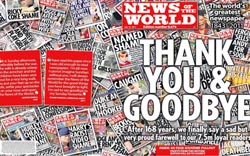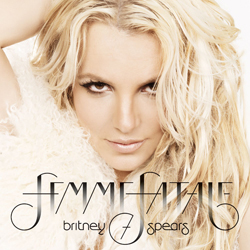 As controversy rages over News International’s investigative reporting techniques, the accountability of journalists and editors is being scrutinised across the board. A self-righteous moral panic is in full swing, with calls for a new Press Complaints Commission, and tighter controls for journalists – it’s ironic that many of these calls are coming from journalists themselves.
As controversy rages over News International’s investigative reporting techniques, the accountability of journalists and editors is being scrutinised across the board. A self-righteous moral panic is in full swing, with calls for a new Press Complaints Commission, and tighter controls for journalists – it’s ironic that many of these calls are coming from journalists themselves.
Whilst the corporate culture at News International appears to have condoned some very shady practices, investigative journalism by nature is not about playing by a rule book. Journalists on the trail of a story need to get information that others do not want them to get. If your interviewee answers questions with a polite “No Comment”, what are you going to do? Go on to the next story, or keep probing, using any means at your disposal? Most journalists are committed to the latter course of action, which begs the question, where do you draw the line?
It seems the British public draw the line somewhere between hacking Royal phones and deleting the voicemails of a murdered teenage girl. But why is the former any less reprehensible than the latter? In The Independent, Dominic Lawson outlines some previous responses to phone hacking stories:
Thus when the Sunday People bugged the flat in which the Tory Cabinet Minister David Mellor was conducting an affair with Antonia de Sancha, nobody would have listened if Mellor had complained about being bugged, because we were all too busy enjoying his humiliation. The Royal Family, even more than libidinous politicians, were the principal targets of the red-top phone-tappers. Thus in 1992 the public were regaled with the so-called Squidgygate tapes, Diana Princess of Wales’s recorded conversations with her friend James Gilbey – apparently the result of the tapping of Diana’s landline. Within weeks the same public feasted avidly on the bugged night-time telephone conversation between the Prince of Wales and his mistress Camilla Parker-Bowles; millions rang a telephone line set up by the Sun, to hear the tape played on a continual loop.
Lawson argues that if there were no public appetite for “kiss-and-tell” stories, newspapers wouldn’t print them, and journalists wouldn’t be under such pressure to obtain salacious details by fair means or foul. However, social comparison is an intrinsic part of our psyche: it’s easy to see the appeal of downward comparison (gaining satisfaction from learning about those whose problems are worse than our own), but upward comparison (reading about the lives of the rich, famous and beautiful) can be a bitter pill to swallow. This is where newspaper exclusives come in. Upward comparison becomes downward comparison at the first whiff of scandal (“she may be rich, beautiful and famous but her husband’s been boffing the nanny”), which makes people more content with their place in the social order. The masses are less likely to protest at the unequal distribution of wealth, inequitable tax laws, and the hegemonic dominance of certain body types, if they are led to believe that wealth and status always has its dark side (hence those “secret misery of Angelina/Jennifer/Kim/Oprah” stories that grace magazine covers every week). Social comparison, as curated by scandal sheets like the News of The World, helps reinforce social structures. This is why politicians cosy up to journalists and newspaper proprietors; they all want the same thing thing, which is to reinforce the status quo.
Tabloid newspapers have traditionally represented themselves as ‘the voice of the people’. In The Guardian, George Monbiot points out that this is simply not the case:
The papers cannot announce that their purpose is to ventriloquise the concerns of multimillionaires; they must present themselves as the voice of the people. The Sun, the Mail and the Express claim to represent the interests of the working man and woman. These interests turn out to be identical to those of the men who own the papers.
So the rightwing papers run endless exposures of benefit cheats, yet say scarcely a word about the corporate tax cheats. They savage the trade unions and excoriate the BBC. They lambast the regulations that restrain corporate power. They school us in the extrinsic values – the worship of power, money, image and fame – which advertisers love but which make this a shallower, more selfish country. Most of them deceive their readers about the causes of climate change. These are not the obsessions of working people. They are the obsessions thrust upon them by the multimillionaires who own these papers.
Monbiot calls for a code of ethics that would make journalists more conscious that they have a role to play outside the circles of power, a kind of Hippocratic oath:
Our primary task is to hold power to account. We will prioritise those stories and issues which expose the interests of power. We will be wary of the relationships we form with the rich and powerful, and ensure that we don’t become embedded in their society. We will not curry favour with politicians, businesses or other dominant groups by withholding scrutiny of their affairs, or twisting a story to suit their interests.
“We will stand up to the interests of the businesses we work for, and the advertisers which fund them. We will never take money for promulgating a particular opinion, and we will resist attempts to oblige us to adopt one.
“We will recognise and understand the power we wield and how it originates. We will challenge ourselves and our perception of the world as much as we challenge other people. When we turn out to be wrong, we will say so.”
While these are noble sentiments, it remains to be seen whether they can fly in an increasingly fragmented electronic media, driven by a 24/7 need to get hits from readers, rather than selling copies to a loyal readership at the newsstand. Nonetheless, this past week has proved above all else that newspapers still have an important function to fulfill in our society, especially when they move beyond simply reporting stories about the elite, and move towards commenting on and condemning them. Thomas Jefferson famously said “No government ought to be without censors & where the press is free, no one ever will”. The New York Times suggests that the News Of The World’s demise may have a ripple effect on the rather moribund version of democracy currently active in the UK.
In truth, a kind of British Spring is under way, now that the News Corporation’s tidy system of punishment and reward has crumbled. Members of Parliament, no longer fearful of retribution in Mr. Murdoch’s tabloids, are speaking their minds and giving voice to the anger of their constituents. Meanwhile, social media has roamed wild and free across the story, punching a hole in the tiny clubhouse that had been running the country. Democracy, aided by sunlight, has broken out in Britain.
We Got The Phone Hacking We Wanted – The Independent
This media is corrupt – we need a Hippocratic oath for journalists – The Guardian
A Tabloid Shame, Exposed By Earnest Rivals – New York Times



